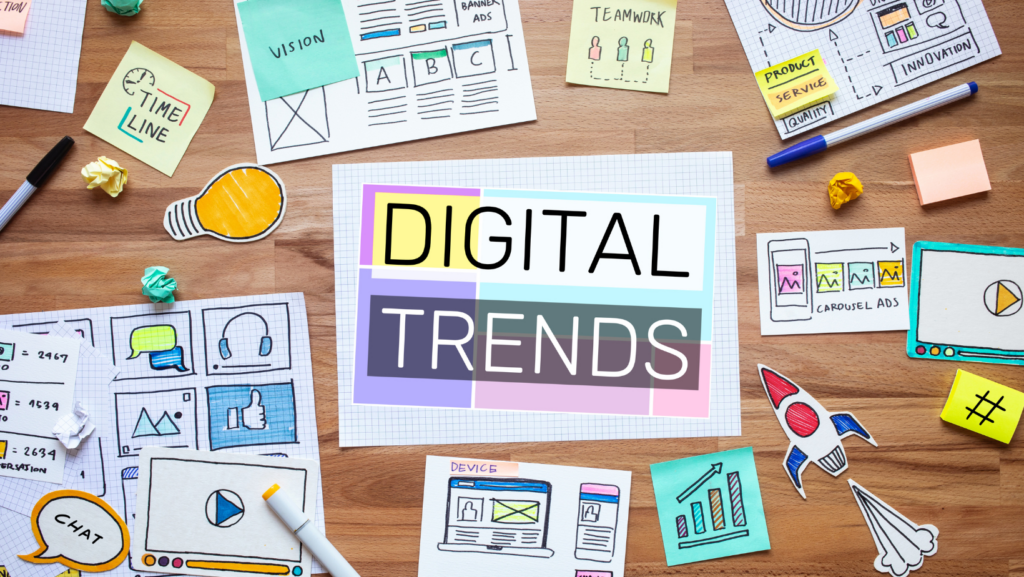In an ever-evolving business landscape, staying ahead of market research trends is no longer an option—it’s a necessity. It’s the compass that guides businesses to make informed decisions, fueling growth and innovation. This article delves into the latest trends shaping the world of market research.
From AI-powered analytics to the rise of qualitative data, the face of market research is changing rapidly. It’s becoming more dynamic, more digital, and more data-driven. So, buckle up as we navigate through these exciting transformations in the realm of market research.
Whether you’re a seasoned market researcher or a novice entrepreneur, this insightful exploration will equip you with the knowledge to harness the power of these trends. It’s time to turn data into actionable insights.
Market Research Trends

If there’s one constant in market research, it’s change. With the rapid pace of technology advancements and evolving consumer behavior, staying on top of market research trends proffers significant competitive advantages.
Keeping abreast of the latest trends in market research isn’t a mere advisable habit for businesses, it’s an essential practice. It makes a marked difference in a company’s ability to meet consumer requirements, adapt strategies and innovate effectively. Companies who fail to stay updated risk being outmaneuvered by more informed competitors. For example, a business not leveraging data from social media analytics may miss vital consumer trends that a competitor using these tools might detect.
Predicting technological advancements, recognizing shifts in consumer behavior, and understanding the business landscape’s evolving dynamics—these crucial elements come into focus when one stays updated with market research trends. Intuition stands supplemented with concrete insights, making decision-making processes more strategic and more solid.
Emerging Market Research Trends in the Digital Age

Market research trends of the digital age offer eye-opening facets of potential growth. They beckon companies towards intelligent decision-making and proactive strategy development.
Big data marks a pivotal trend, as markets plunge into the digital age. Immense volumes of data, as every email sent, online transaction made, or social media post shared, possess valuable market insights. For instance, consumer purchasing behavior, preferences, and tastes sow seeds of opportunity for businesses. These seeds, when cultivated by knowledgeable analysis, bloom into strategic decisions, customized product offerings, or even fresh markets.
AI in Market Research: A Gamechanger
As an emerging trend, Artificial Intelligence (AI) is revolutionizing market research. AI-powered analytics tools can dissect unstructured data (for example, social media posts or customer reviews) and transform it into actionable insights more efficiently and accurately than traditional methods could dream. This, in turn, allows companies to apprehend consumer sentiments and forecast market trends faster than their rivals, enabling prompt, timely responses to alterations in the market landscape.
The Future of Market Research Trends

In the future, market research trends are set to evolve further, leveraging technology to better understand consumer behavior and market conditions. This section explores what the future holds for market research trends.
Predicting the future trajectory of market research trends, it’s reasonable to expect a more substantial reliance on technology. Software solutions, for instance, are poised to enhance data gathering and analysis (an example being advanced AI applications to interpret complex datasets). Also, Real-time analytics solutions stand at the precipice of becoming mainstream, given their ability to monitor market trends and consumer behavior continually.
Another speculation is the surge in micro-targeting, where companies will rely more on data from specific demographics rather than generalized conclusions from broader audiences. Furthermore, businesses may take Virtual Reality (VR) beyond games and utilize it to create immersive consumer experiences, providing key information regarding product use and preference. For instance, VR can facilitate simulated store environments to understand buying behavior
Changes in data privacy laws also loom as a potential trend shifter. On one hand, stricter data privacy laws could restrict access to consumer information. On the other hand, they might compel firms to develop more sophisticated means to leverage consumer data without infringement.



